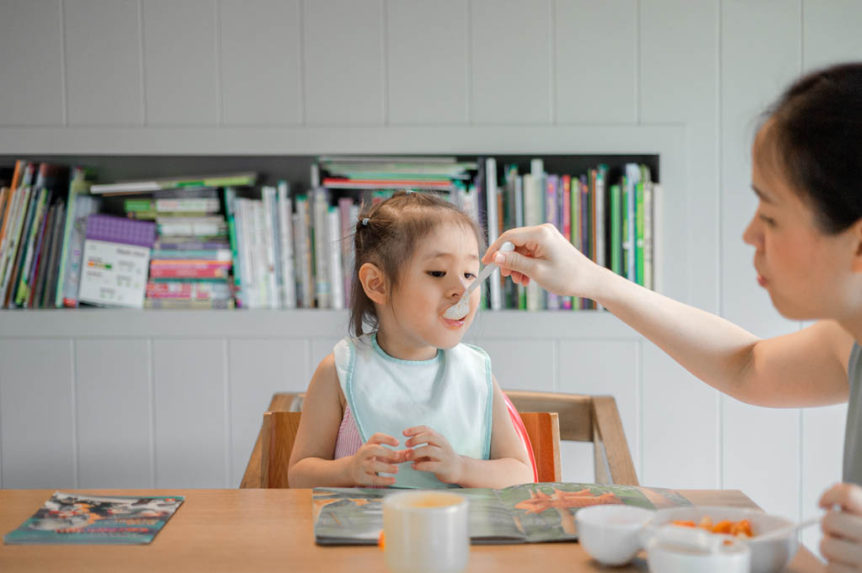Talking about the routines of a day in detail is one of the ways I work with families when a child has communication needs. Discussing routines is important and helpful whether that child has speech difficulties, autism, global developmental delay, language delay, Down Syndrome, or other difficulties. Exploring routines based early intervention has helped many families.
We wake up, eat, get ready to go out, have play time, screen time, bath time, bed time… These are the routines that are naturally occurring activities happening with regularity in your day. Families create routines and there’s not a ‘right’ way or time to do something. The activities of the day provide opportunities for routines based early intervention.
In thinking about the patterns of action and communication during your family routine times, you may find ways to engage your child more and make a positive difference to their development. It’s easy to get stuck in a way of doing something because it’s always been done like that. What if there was a minor change or addition to a routine that encouraged more talking or participation from your child?
When we meet together for a therapy appointment for your child, we can think about your routines (time of day for everyday events and activities). For each routine a family can consider:
- What’s everyone doing? What is this child doing?
- How is your child participating in this activity? (engagement)
- How much does your child do for himself or herself? (independence)
- How is your child interacting with others at this time? (social relationships)
- How satisfactory is this time of day for the family?
Together we build goals and routines based early intervention around what interests the child (and parent). We often think we know best what children like to do or should be doing. We can step back, observe, ask good questions, find out what you do for fun, how your child interacts during caregiving activities, and what you would like your child to be able to do. Adding strategies during these activities is really where the magic happens! Keeping watch over time as a child develops and as routines change can help you adapt and see progress continue.
Service providers like myself don’t create the routines – families do. There’s nothing wrong with a professional showing you new strategies and games to boost communication, but you are more likely to use what you learn successfully throughout the week if you can use the tips and techniques during your everyday routines and what you are already doing.
If you would like help to develop your child’s communication skills by exploring routines based early intervention, give me a call and we can look at ways to help them in your daily life.
N.B. Information about ‘routines’ is one aspect of Routine Based Early Intervention by R. A. Mc William (2010). I use some aspects of the Routines Based Early Intervention model as a guide to support you and your child, rather than using the model in its entirety given the nature of private practice.
Source: Routine Based Early Intervention. Supporting young children and their families, R A Mc William (2010).

